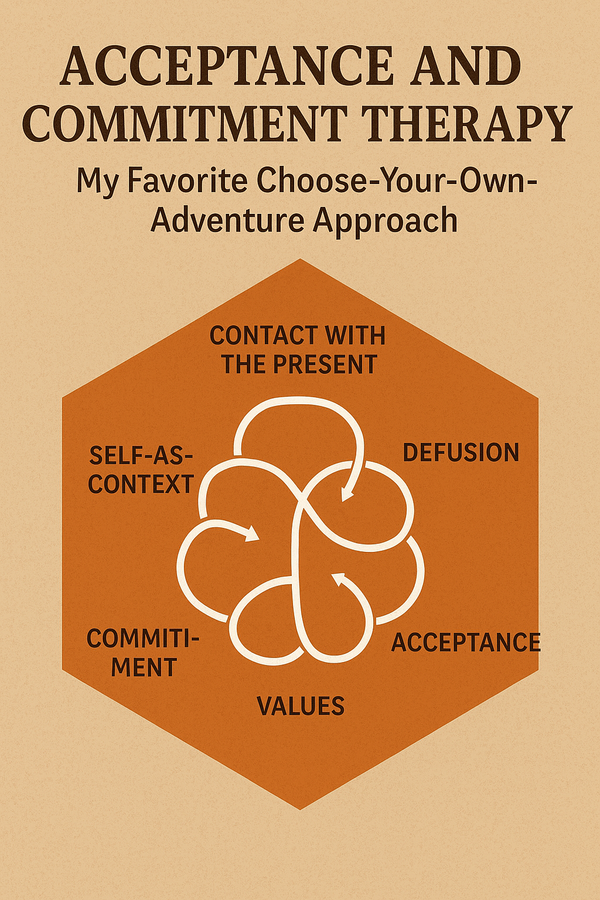Turning Vague Hopes Into Real Change ✨💥

I was going to send a client resources on setting SMART goals and connecting them to values, but what did I find online? Corporate HR slides, business strategy PDFs, and a failing SAMHSA website that looks like the current administration defunded the soul out of them. Seriously. This is both a symptom of the current state of mental health care and the corporatization of pop psychology.
I genuinely hope what I’m doing here at Regulated Baddie gives a better alternative—something actionable, real, and even a little cheeky—to consuming mental health information. But I digress...
We all have that list of vague hopes floating in our head: be healthier, find love, feel better, get my life together. Cute ideas. But vague hopes don’t get you very far. Change doesn’t happen because you “kinda sorta” want it. It happens because you get specific, intentional, and consistent. That’s where SMART goals come in. 📝
🏹 What the hell are SMART goals?
SMART = Specific, Measurable, Achievable, Relevant, Time-bound.
Basically, it’s a way to drag your dreamy, blurry wishes into the real world.
- Specific: “I’ll walk for 20 minutes.”
- Measurable: “Three times per week.”
- Achievable: Not signing up for a marathon when you haven’t found your sneakers in six months.
- Relevant: Actually matters to you (not just what Instagram says).
- Time-bound: “For the next 30 days,” not “forever and ever amen.”
SMART goals take “I want to be healthier” and turn it into “I’m walking around the block three times a week before dinner.” And that’s a goal you can actually build on. 💪
❤️ But let’s be real: goals without values = trash
Here’s why SMART goals flop for most people: they’re not tied to your values.
Russ Harris (the ACT therapist guy I love) teaches that values are your compass. Health, relationships, growth, contribution... whatever actually matters to you. If your goals don’t line up with those, they’re just chores.
Examples:
- Value connection → “Text two friends this week to hang out.”
- Value growth → “Read 10 minutes before bed, 5 nights a week.”
- Value health → “Stretch for 10 minutes every morning for a month.”
When your goals come from your values, they stop feeling like self-improvement homework and start feeling like, oh right, this is who I want to be. 💎
🔁 Habits: the secret sauce
Even the best SMART goal won’t stick if you don’t build it into a habit. Enter: Charles Duhigg’s Power of Habit.
The habit loop = cue → routine → reward.
- Cue: shoes by the door.
- Routine: walk around the block.
- Reward: that little rush of “hell yeah, I did it.”
Want to drink more water? Cue = glass on the counter. Routine = drink before coffee. Reward = cross it off your tracker (or blast your fave hype song).
Habits simplify your day-to-day. You don’t have to decide 47 times if you’re going to floss. You just do it, because it’s baked into your loop.
Stack enough of those, and suddenly your “vague hopes” have transformed into daily receipts. 🔄
🧠 Existential Bonus Round: Every f*cking moment matters
This isn’t just self-help fluff. It’s literal science and existential truth.
- Neuroscience: Repetition rewires your brain. Neural pathways strengthen as behaviors are repeated. Tiny, intentional actions gradually change your identity at the neural level.
- Behavioral science: Habits compound. 1% improvement per day translates into massive change over months. Momentum is built from consistent micro-actions.
- Existential truth: Every choice, every micro-habit, every decision to show up or not is an opportunity to live your values. Life doesn’t care about your intentions; it responds to your actions.
- Integration: SMART goals + habits + values = scaffolding for a meaningful life. You’re literally translating abstract ideals (“I want to feel connected, strong, capable”) into daily actions that matter.
Your brain learns, your body acts, your life accumulates. That’s why every f*cking moment counts, even when it feels small or mundane. 🌱
✍️ Reflection: What might get in the way?
Before you write your own goals, pause and reflect:
- What obstacles might pop up? (Time, motivation, resources, stress, mental blocks)
- Which habits or routines currently support you? Which sabotage you?
- How can you plan around likely barriers to stay realistic?
Being honest about what’s going to get in the way isn’t defeatism. It’s strategy. It’s the difference between setting goals that sound good and goals that actually work in your life. ⚡
✏️ Write Your Own SMART Goals
Here’s a mini exercise: pick three domains of life (health, relationships, career, personal growth) and write one SMART goal for each.
- Keep it small, achievable, and tied to your values.
- Consider cues, routines, and rewards to scaffold it into your daily life.
- Reflect on what could block you, and plan a workaround.
Example:
- Health: Walk 15 minutes after lunch, Mon/Wed/Fri for 4 weeks. Cue = lunch plate cleared. Reward = blast your favorite song.
- Relationship: Message one friend each week to schedule coffee. Cue = Sunday morning coffee. Reward = coffee + chat.
- Growth: Read 10 pages of a book before bed, 5 nights per week. Cue = pillow ready. Reward = check off tracker + gratitude moment.
Your journey won’t look like mine. Mine won’t look like yours. That’s the point. The goal here isn’t perfection. It’s action, alignment, and forward momentum. That’s how vague hopes turn into real change. 🔥




